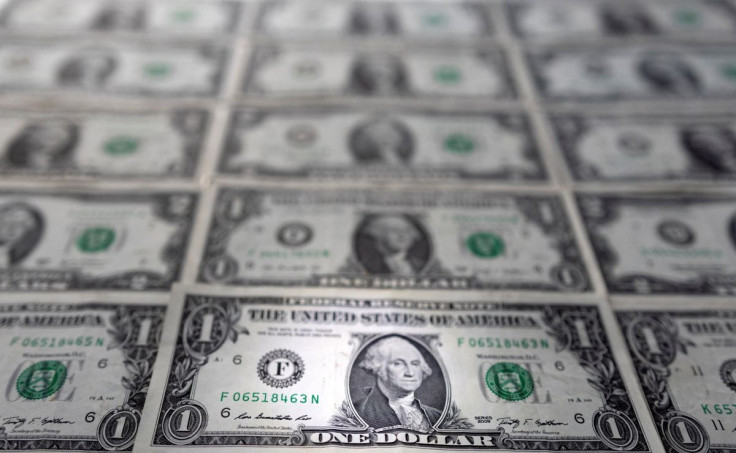Dollar Shelters Under Recession Clouds As Investors Put Safety First

The dollar found support from investors worried about recession and seeking safety to hold just below a two-decade high on Monday, having slipped late last week after downbeat U.S. economic data reduced bets on U.S. interest rate hikes.
While Asian stocks followed Wall Street higher, currency traders were wary of extending Friday's dollar selling because the dollar typically rises in times of uncertainty. [MKTS/GLOB]
The risk-sensitive Australian dollar eased 0.3% to $0.6918, weighed down by sliding commodity prices. The euro was pinned at $1.0563, though the beaten-down yen steadied to 134.68 per dollar.
The U.S. dollar index was steady at 104.010, having made a 20-year peak of 105.79 earlier in the month.
Weakening U.S. economic data knocked it off that perch, and a survey released on Friday showed consumer confidence at a record low, giving another prompt for investors to cut back bets on U.S. interest rate hikes.
But the spectre of a global slowdown, and a preference for dollar-denominated assets in such times, has underpinned the greenback.
"The dollar tends to rise when people worry about a global recession," said Commonwealth Bank of Australia strategist Joe Capurso in Sydney.
Futures pricing shows traders now anticipating the U.S. Federal Reserve's benchmark funds rate stabilising around 3.5% from March next year, a pullback from pricing in rates zooming close to 4% in 2023. Treasuries rallied last week.
The New Zealand dollar was pinned at $0.6035, while sterling was stuck at $1.2282. [NZD/][GBP/]
Chinese factory activity data due to be released later this week could provide a guide as to whether the world's second-largest economy is finding momentum again after the disruption caused by strict COVID-19 lockdown measures.
China's yuan was steady at 6.6920. [CNY/]
© Copyright Thomson Reuters 2024. All rights reserved.




















